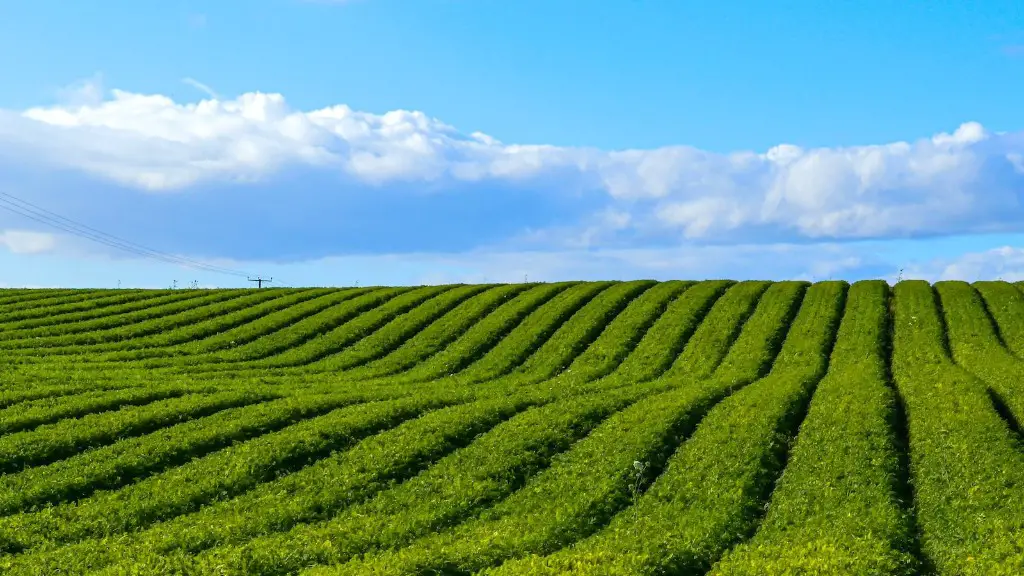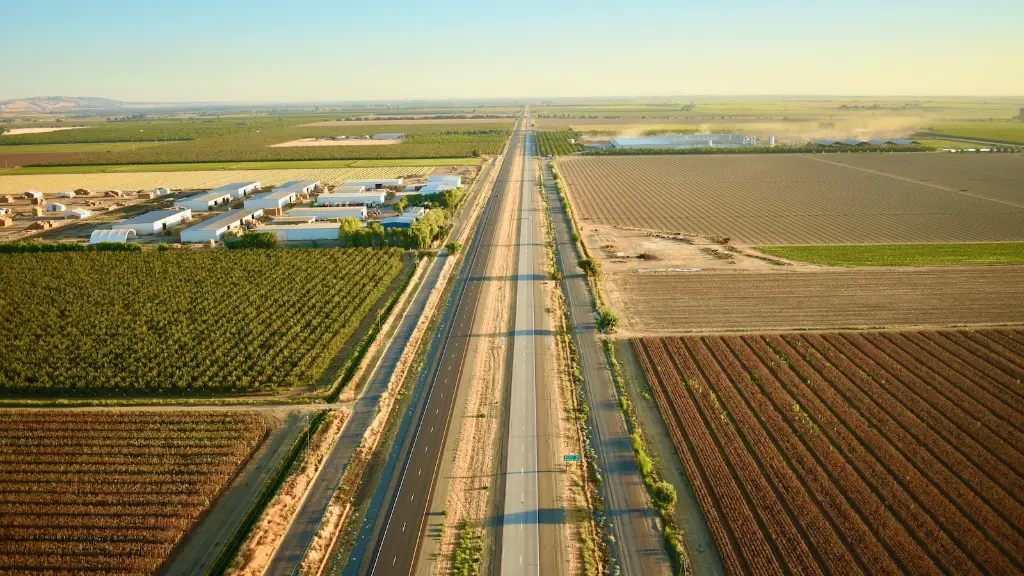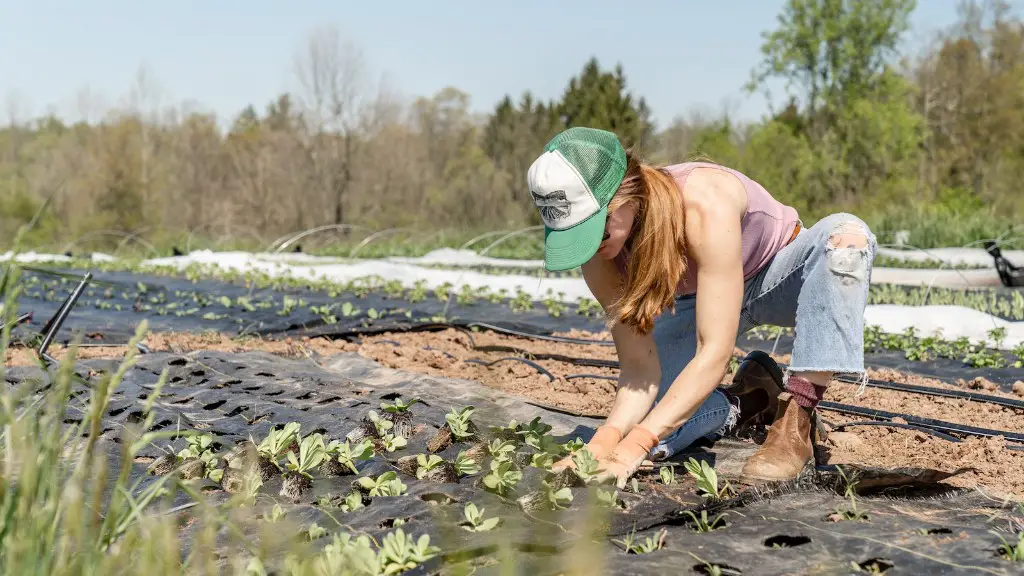Agriculture is a complex and important sector of the economy, which has a great influence on both people and the environment. Its success is affected by a combination of natural factors and human activities. Soil quality and weather conditions, such as temperature and rainfall, are arguably the most important factors that significantly determine the success of an agricultural project. Agricultural practices play a role in affecting soil fertility, water supply and water waste, as well as weather effects.
Soil quality is essential to the success of an agricultural business. It greatly influences the growth and yield of crops produced. Gradual soil erosion due to intensive farming or wind and water movement can cause a notable decrease in soil quality. Changes in soil fertility can also be caused by poor irrigation management, inadequate crop rotation and the use of chemicals such as fertilizers and pesticides.
Agricultural manufacturers also face great influences from different climatic factors, including temperature, humidity and other meteorological variables. Optimal temperatures for crop growth vary according to the geographical location, as well as the type of crop and season. The excessive heat and drought can damage crops, while the absence of regular rain can cause crops to become stressed or even die in extremely dry conditions.
Water is another vital element in agricultural operations. Water distribution needs to be adequate and timely in order to ensure proper crop growth. Poor water management and the presence of contaminants can cause damage to plants and soil. The amount of water that is allowed to escape into watercourses, or collected in water reservoirs can also affect the surrounding ecosystems and biodiversity.
The expertise of agricultural workers is another factor that affects agriculture. Skilled labour can be essential in understanding how to efficiently work the land, cultivate crops and manage the environment. Poor agricultural practices can affect sustainability, yield and the environment. Unexpected events such as pest infestations or floods can also have an impact on agricultural output.
The availability and cost of capital for agricultural projects can have a great influence over agricultural success. Spending on land development, equipment and supplies can affect the sustainability and productivity of a farm. The availability of governmental subsidies may help to reduce the cost of investment and improve yields in the future.
Overall, agriculture is a complex sector affected by a combination of natural factors and human activities. Knowing these influences and how to manage them is essential for agricultural producers who want to ensure their success.
Soil Quality
Soil quality is the first factor that significantly determines the success of an agricultural project. The quality of soil can gradually be eroded each season, creating an even lower quality than that which already existed. Poor irrigation management and the absence of crop rotation and the use of chemicals such as fertilizers and pesticides can further degrade soil quality.
Knowing how to protect soil quality is key to an agricultural project. Crop rotation is one method that can help to maintain soil fertility levels, as well as the addition of organic material. This helps to reduce the need of chemical application. It is also essential to consider land grade improvements to reduce the effects of water run-off.
Conservation tillage is another technique that can reduce soil erosion. This consists of minimal soil disturbance and can help improve soil structure. A cover crop is also an important tool in maintaining soil health. Planting these before the primary crop not only helps to reduce erosion but can also improve organic matter and nutrient levels.
Sustainability is an important factor in considering soil quality. If a landowner practices sustainable farming and avoids destructive agricultural practices, the soil quality should remain intact throughout the cropping seasons. Utilizing crop rotations, planning water management strategies and avoiding over-cultivation are essential sustainable methods.
Finally, chemical management is an important aspect of soil maintenance. Fertilizers and chemical pesticides should only be used moderately and after a thorough analysis of soil quality. Sensible and timely applications of these chemicals can have significant benefits in soil health and consequently to plant health.
Weather Conditions
Weather conditions, such as temperature, rainfall and weather patterns are also hugely influential in agricultural production. High temperatures and inadequate rainfall can create stressful conditions for crops or even cause them to die. Unexpected weather forces, like floods and hailstorms, can cause immediate and irreparable damage to plants and soil.
Fortunately, most farmers are able to predict which weather patterns will affect their crops so they can prepare accordingly. They can access information on average temperatures, wind speeds and directions, and potential precipitation, as well as potential storms or other hazards. This gives them an indication of what to expect and what measures to take.
Farmers are also able to understand the effects of climate change on their crops and are prepared to take the necessary measures to protect their crops. With the help of technology, farmers are able to use digital tools to monitor their fields and adjust irrigation, fertilization and planting patterns in an efficient way.
One negative consequence of climate change is the development of anaerobic soils in certain areas, especially near over-irrigated vegetable fields. Erosion from wind and water movement can also significantly degrade soil quality. While farmers cannot prevent these problems, they can minimize their effect by practicing soil conservation techniques.
Weather planning is important for farmers, who need to be knowledgeable about current weather patterns, long-term forecasts, and the effects of climate change. This can be difficult and time-consuming, yet farmers who understand the importance of weather on their crops can ensure the success of their agricultural business.
Agricultural Practices
Agricultural practices also play a role in affecting soil fertility, water supply, water waste, and weather effects. Planting at the wrong time and on the wrong ground can create problems for the crop. In addition, over-cultivation and incorrect crop rotation can impact soil fertility, reducing the amount of nutrients available for crops.
Pest infestations can be especially damaging to crops, therefore it is important to control certain pests and diseases. For example, using trap crops, crop rotation and selectively chosen insects can all help to control plant-eating pests. Insecticide sprays and bio-sprays, though sometimes toxic, can also help to combat pest infestations.
Weeds are another agricultural issue that needs to be managed. Weeds usually compete with crops for space, nutrients and water, resulting in crop losses. Therefore, prevention techniques should be used, such as the correct use of herbicides to ensure weeds do not dominate the available resources.
Another factor that affects agriculture is the season of harvest or planting. Plants usually react differently if they are planted at the beginning or the end of their respective season. Knowing which crops grow best in the typical climate, as well as the seasonal cycles and temperatures, can drastically improve farm production.
Agricultural workers also require certain skills to maximize crop yield. For example, soil preparation professionals must have the knowledge to make a deep analysis of the soil in order to apply the correct amount of fertilizer, and to prevent waterlogging and soil erosion.
Availability of Capital
Capital availability is another factor that can influence agricultural success. Investment in land development, equipment and supplies involves significant expenditure. This can be reduced through the use of incentives, such as governmental subsidies and tax relief.
Access to the necessary funding can be an obstacle for those wishing to start an agricultural business. Financial limitations can prevent them from adequately preparing the land, purchasing the necessary equipment, implementing technological advances and employing skilled labour. However, support from governmental or private sources can considerably reduce the costs and make them easier to bear.
Therefore, agricultural producers need to be aware of funding opportunities and the ways in which they can access them. Further, they must understand that a clear financial plan is essential; it should include an estimation of the necessary investment, the sources of funding, as well as a feasibility plan of successfully managing the business.
In conclusion, capital availability is a key factor that affects agricultural success. Agriculture businesses must be aware of the available funding sources and how to access them, as well as how to create a feasible financial plan. This can be the foundation of a profitable agricultural venture.
Expertise of Agricultural Workers
The expertise of agricultural workers is another important factor in maximising agricultural yields. The agricultural sector requires knowledgeable professionals to work the land, cultivate crops and manage the environment.
Skills such as soil analysis and tilling, as well as crop rotation and agricultural chemicals application, are essential for a successful agricultural business. Knowledge in current technological advances, such as precision agriculture, can make for an even more successful project.
The ability to use agronomic principles is a fundamental skill for agricultural workers. This includes the knowledge to apply soil fertility, pest management and irrigation strategies. Such skills allow for a deep understanding of crop, water and nutrient needs and enable for farmers to identify and address problems before they occur.
The understanding of organic agriculture, a practice that uses natural methods of cultivation and avoids the use of synthetic chemicals, can also help a farm to be more successful. Research in which organic materials can be used to replace synthetic chemicals, to improve soil quality and prevent pest infestations, should be a priority.
A successful agricultural business also relies heavily on the knowledge of the land. Farmers must know the local weather patterns and the needs of their crops depending on the season. They must be familiar with the area and the different types of crops that can grow in the region, and how to manage the land so as to maximize growth.
Overall, agricultural workers must be experts in the management of land, crops and the environment. Acquiring such skills can greatly improve the prospects of a successful agricultural business.





